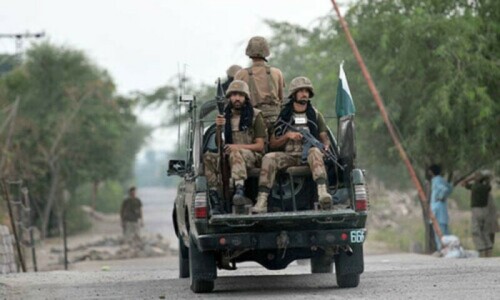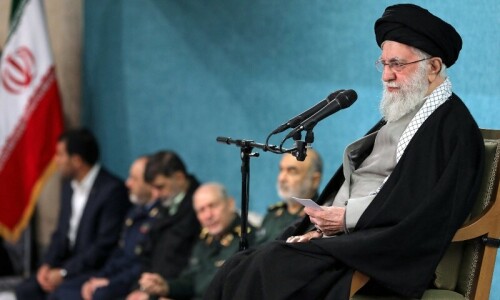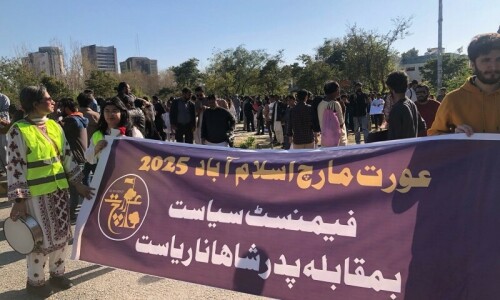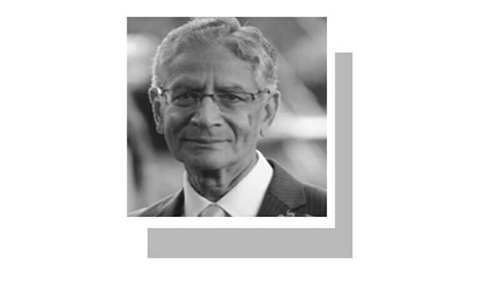Why attempts to reform Pakistani education fail

ONE hears that there’s now yet another government task force, this one for “improving education standards”. How many such bodies have we seen over the decades? So many, in fact, that Islamabad’s bored education bureaucracy hasn’t even bothered to keep all the records.
None — including the ones I was once part of 20-30 years ago — has led to even slightly improved reading, writing, comprehension and arithmetic skills. Faced with dismal statistics, the typical reaction is: Pakistan must spend more on education. Well, who doubts that?
But countries spending less per student have better educational outcomes than Pakistan. Reducing corruption, eliminating ghost schools, and ensuring teachers come to class would be welcome developments. But this too is insufficient.
Creating well-functioning educational institutions suitable for the modern age requires more than just money and good governance. Unlike hospitals or airports, they are the result of particular cultural and ideological choices. So far every attempt to modernise education has run into an invisible brick wall. Understanding this is crucial.
Education is a confusing term because it has a broad range of meanings. But at the extremes lie two fundamentally different types — traditional education and modern education. Like oil and water, they do not mix together however vigorously shaken.
This is not to say that one is superior to the other, but they have different teaching methods, exemplars, and sources. Most importantly, they have totally different goals.
Traditional education — Christian, Jewish, Muslim, and Hindu — seeks to prepare the student for a better afterlife. Its epistemology begins with the appropriate holy texts, the primary source of knowledge. Knowledge comes by revelation and thus unchangeable; the content is fixed until eternity.
Modern education, on the other hand, is 100 per cent secular and this-worldly. It shamelessly changes content according to need and circumstance, caring only about the here and now.
So, for example, a school student is taught about global warming today but 20 years ago this was not so. Entire new disciplines keep popping up; for example, computer science and biotechnology were born just a few years ago.
Every attempt to modernise education has run into an invisible brick wall of culture and conservatism.
Teaching methods and the student-teacher relationship also differ sharply between traditional and modern. The traditional teacher is an authoritarian who may not be questioned and is socially authorised to inflict physical punishment when needed.
Critical thinking — vital for modern learning — is discouraged. Obedience is rewarded. It is considered a prime virtue in our schools, colleges and universities.
Pakistanis overwhelmingly prefer traditional education. A survey in 2003 conducted around the Rawalpindi area by Matthew Nelson, professor at the University of London, discovered a whopping 41pc preference for the statement: “A good school is a school that creates good Muslims. In other words, good schools provide students with strong values and strong religious beliefs.” A mere 10pc approved the case for evidence-based modern education.
Less affluent sections of Pakistani immigrants in Britain have similar preferences. British public schooling is free, buildings are adequate, corruption is not a problem, a single language of instruction (English) dominates, and other immigrants use the system successfully to improve their skills and economic status.
But Pakistan-origin British children have math and reading skills lower than those of whites or Indians. In fact, they are at the low end of all ethnic minorities in Britain. That’s because many Pakistanis fear their children will lose their religious moorings and therefore choose to home-school their children or send them to faith-based schools.
This mirrors the situation back home. Pakistan has countless madressah and home-educated hafizes. Their commitment to memory of the holiest of texts is entirely laudable, and is socially rewarded. Unfortunately the notion that memorisation equals education carries over from the religious domain into the secular.
This creates absurdities of the highest order. Although parroting buys little elsewhere in the world, Pakistan’s math and science hafizes are richly rewarded. They top the exams of local examination boards, all without achieving any understanding of their study material. Many eventually finagle their way to top administrative positions while others become highly paid university professors who reinforce the ratta system.
Which kind of education should a Muslim society encourage? Traditional or modern? This question created friction between the traditional ulema and Muslim modernisers during the colonial period. Nineteenth-century Egypt seethed with such debates.
On the Indian subcontinent, Sir Syed Ahmad Khan saw lack of modern education as the primary reason for the misery and poverty of Muslims after the failed 1857 uprising. Braving conservative backlash, he was successful in encouraging a section of Muslims to learn science and English.
Since those times, things have changed somewhat. Today’s religiously conservative middle-class Pakistanis do recognise the connection between modern education and worldly success. Hence most do not send their children to madressahs. Instead, they seek out hybrid schools, which resemble the old system but with patches grafted from the new.
Although a step forward, hybridisation is often awkward. Old and new are put through a meat grinder; that which emerges is in mangled form. For example, local biology textbooks published under state supervision typically have a chapter on Darwinian evolution. But that same book’s introductory chapter ridicules evolution as anti-religious and not to be taken seriously. Where does that leave the poor student?
The state, in seeking to establish its legitimacy, uses education as a tool for indoctrination. This has turned Pakistan into a more conservative country than most other Muslim countries. Even as it abdicates its basic responsibility by outsourcing education to private hands, the state nevertheless remains vigilant against the penetration of secular ideas into the system.
Western intellectual products, particularly critical thinking and the scientific method, are considered dangerous. Therefore even science subjects, sprinkled onto a substrate of belief, are taught without using the scientific method.
The middle ground between traditional and modern education is still being sought. Until such time that there is a clear separation of religious and secular educational content, and unless fear of being overwhelmed by secular ideas is consciously overcome, education outcomes in Pakistan will stay just as they are. More task forces won’t help unless they specifically address this issue.
The writer teaches physics in Lahore and Islamabad.
Published in Dawn, October 27th, 2018
Download the new Dawn mobile app here:














































